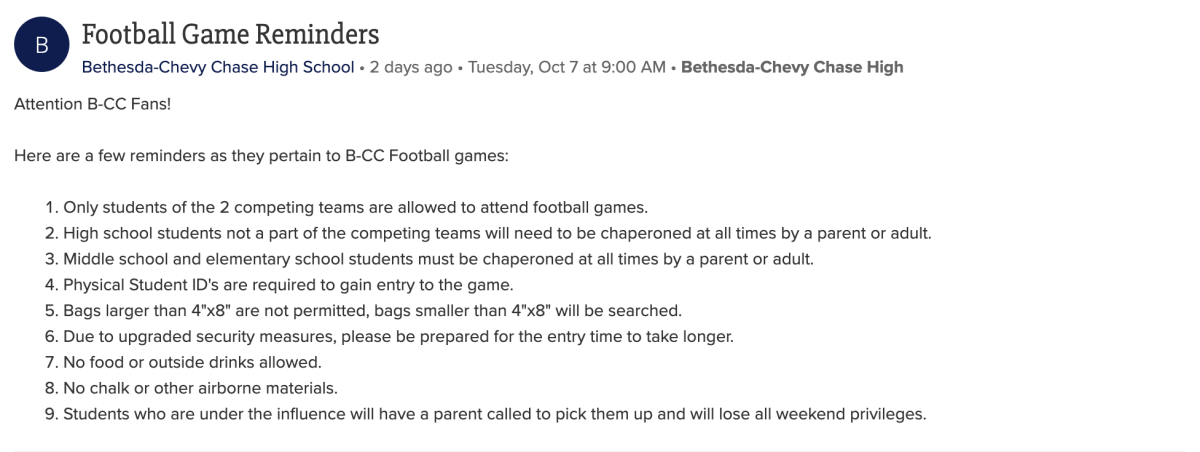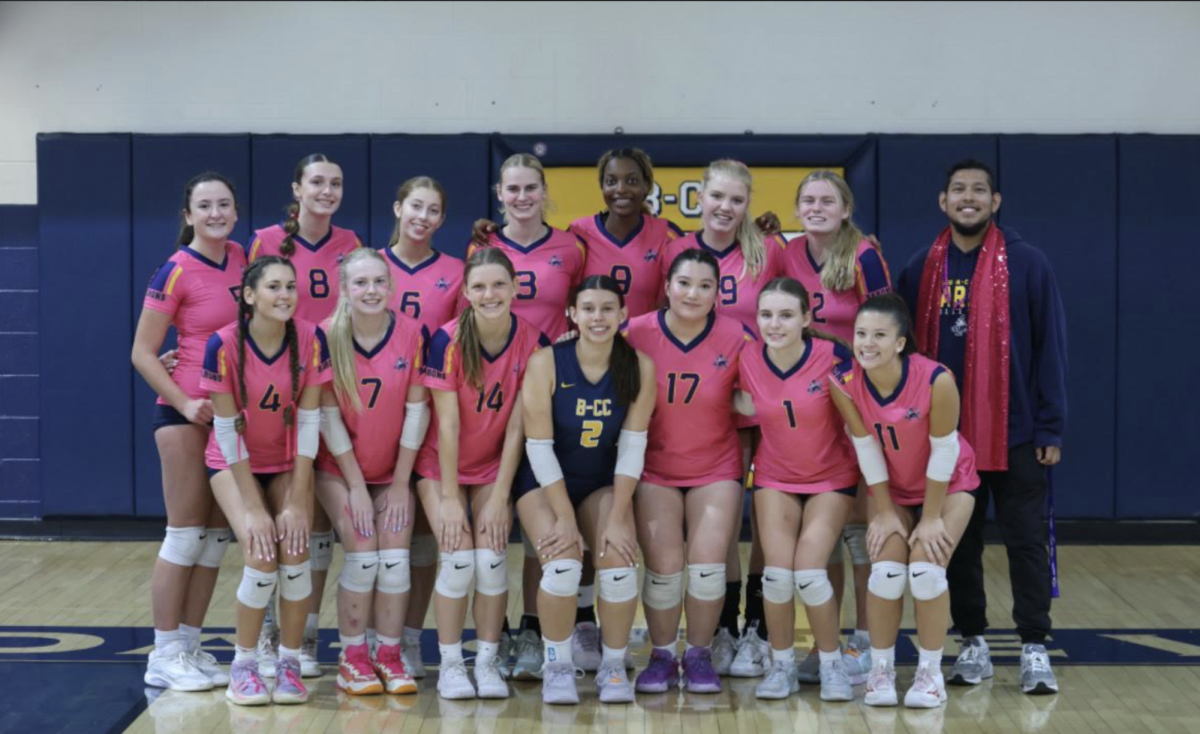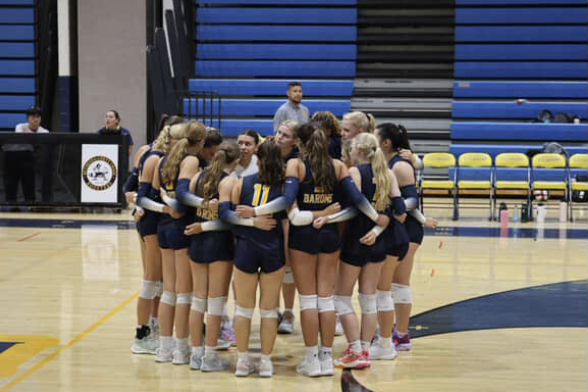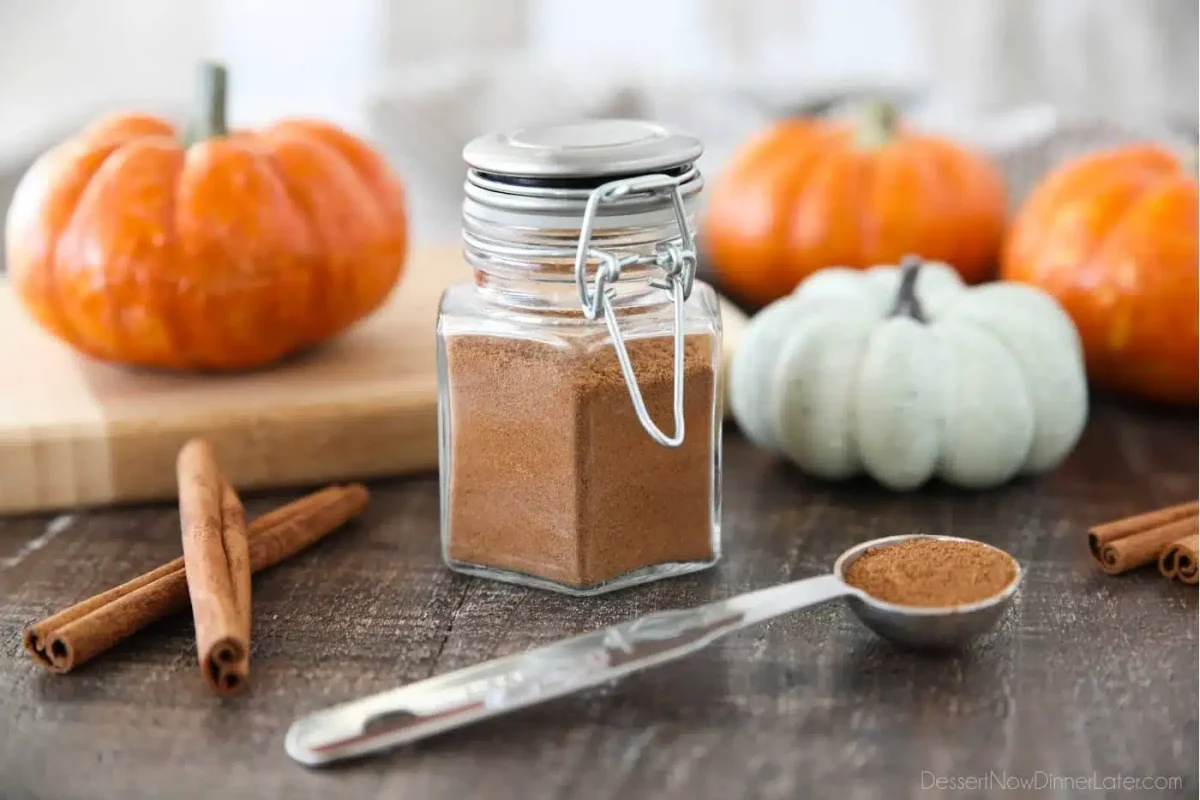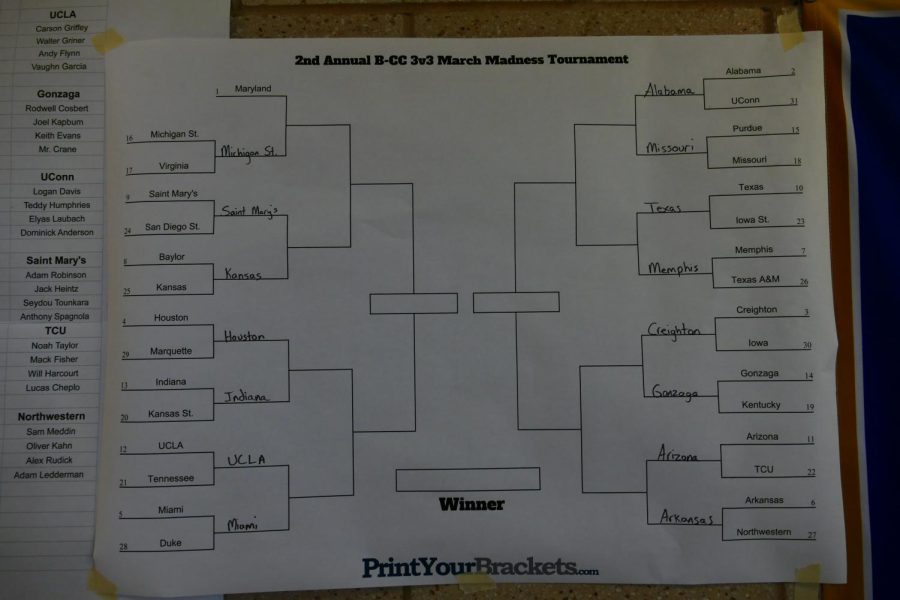How To: March Madness
March 30, 2023
Nothing dominates the month of March more than March Madness, a sixty-eight-team college basketball tournament consisting of any Division 1 college program. B-CC had its own mini-March Madness at B-CC with a 3v3 tournament that pitted B-CC students against staff. Teddy Humphries, a B-CC senior and participant in B-CC’s tournament, stated, “We even treated our game like a war zone; once you step on the court, there’s no such thing as friendship”.
While watching the buzzer-beaters, dunks, upsets*, and comebacks are certainly exciting for viewers, making your own bracket (and predicting correctly!) is even better. For the Division I March Madness tournament, viewers across the world tried to perfectly select the winners of all 63 games. With countless websites where there’s a leaderboard and prizes for individuals with the most accurate bracket, as well as bets set between friends, getting the most accurate bracket possible has its benefits. The question is, how?
There are multiple tips and strategies for constructing a successful bracket, here are mine:
- Don’t only pick the best teams.
There has only been one time in the history of March Madness when all four teams in the final four have been number-one seeds*. With that said, there’s also never been a tournament where the higher seed has won every game, so picking each high seed blindly would be a very poor choice.
- Knowledge of the sport does not matter nearly as much as you think.
While watching college basketball before the tournament can help pick winners because you understand the players, coaches, etc., it’s not that big of an advantage. So much of picking the teams is luck; there is no way anyone could have come up with a logical reason behind Florida Atlantic or San Diego State making the final four, but they did. Unlike the National Basketball Association, the college basketball postseason is not a series; there’s only one game, and in that one game anything can happen. So, if you are worried that the people in your pool have more knowledge and, therefore, you don’t have a chance, do not worry; you will be just fine.
- When picking your winner, do a little bit of research.
I know that I previously mentioned that knowledge of the sport is not a big deal, but it’s important to have background knowledge about the team you picked to win it. For example, this year, Houston was a popular choice for a winner. However, their best player was injured, and they weren’t sure when he would return. If he were to possibly miss the entire tournament, that would be a very big deal and it should change your decision about picking them as a winner. Overall, it’s very useful to understand exactly who you pick to take home the trophy.
- Go with your gut.
Because picking a good bracket is mostly luck, when you’re picking the winners of each game, just go with what you feel. If you think that a 13 seed will beat a 4 seed, then pick it; if you think a 15 seed will beat a 2, then pick it. Anything can happen in this tournament, and sometimes just a feeling could determine whether you win your pool or group.
- Stay realistic and keep a median
While going with your gut is the right thing to do, you can’t go too crazy. Picking a 16 seed to make the final four is incredibly unrealistic and almost impossible, and choosing a 14 seed to win the tournament has chances below 1%. Upsets are bound to happen, but you can’t have too many, and the great teams will win but not all of them. Try your best to not lean too heavily to one side.
*When the winner of the game was seeded five or more places lower than the team it defeated
*The number that corresponds to a team’s ranking within their league.



